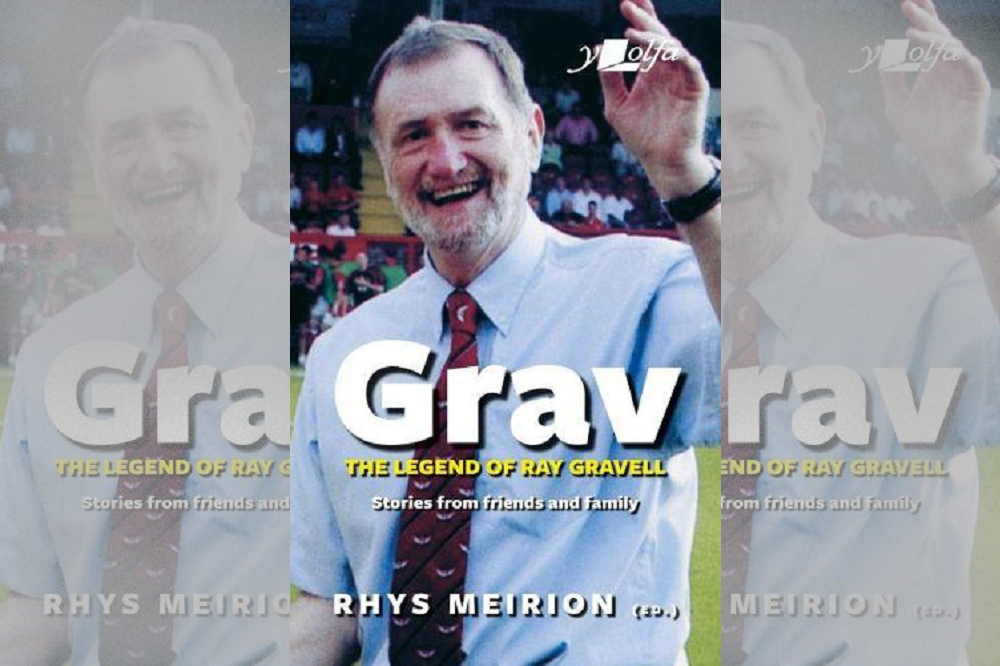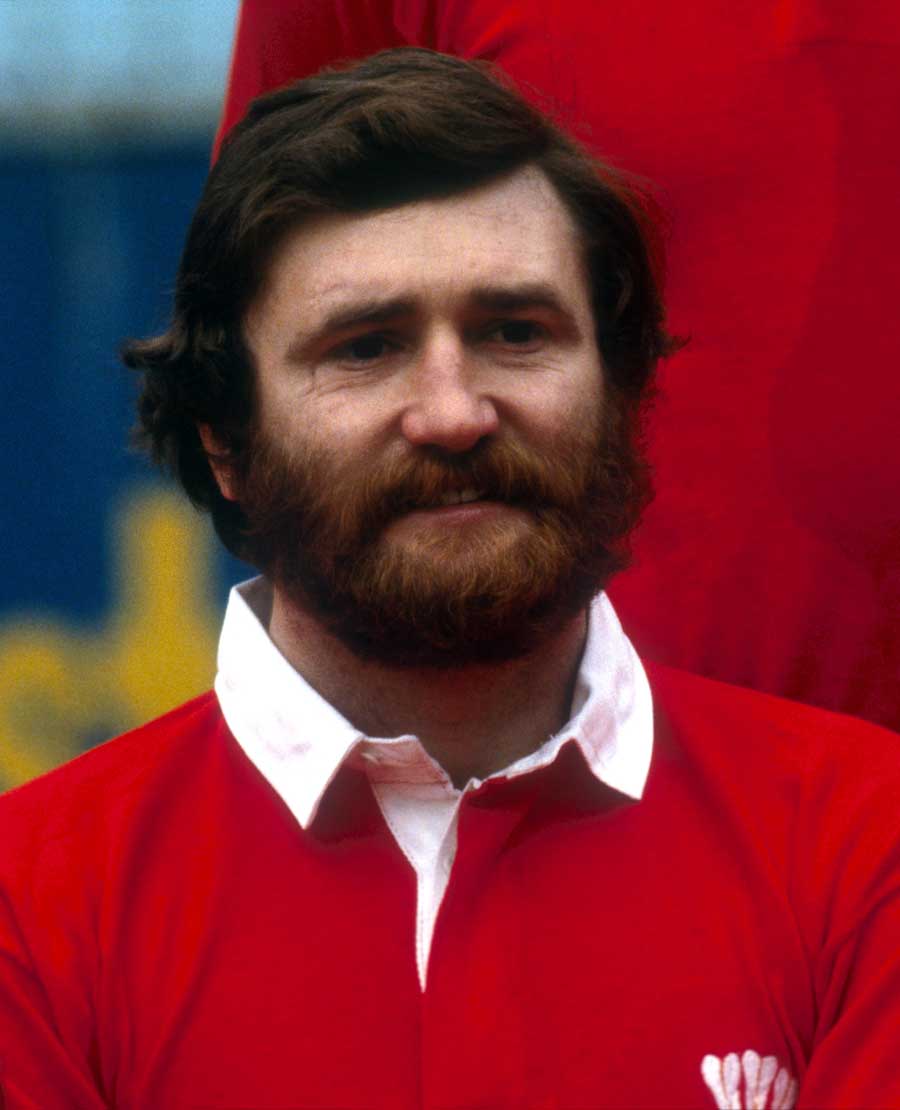Review: Grav – the Legend of Ray Gravell is a collection of reminiscences & anecdotes all told with love

Jon Gower
Grav was one of the most inspiring, warm-hearted, infectiously uplifting characters many of us will ever have the privilege to meet, a man who would bellow out your name with complete delight when he saw you, as if he’d just discovered another inhabitant of a desert island and no longer had to be alone. He made you feel special because he was very special, a man who won the hearts of thousands because of the open-ness of his spirit and the recognisable depth of his love for the things that sustained him – his treasured family, the legion of friends, the rugby he played with a fierce passion, the village of Mynyddygarreg and the rest of the west of Wales, because ‘West is best,’ as he constantly maintained in his little mantra.
It may be a decade since Grav left us but his spirit lives on in this collection of reminiscences, anecdotes and recollections about a man whose ‘personality would fill an aircraft hangar’ as Roy Noble neatly puts it. Some of the rugby stories – spanning his schoolboy years at Carmarthen Grammar to the glory years of donning a Wales shirt – are hoary old chestnuts, oft repeated, but no less smile-inducing for that, all bringing the ‘bearded Viking in the Welsh midfield’ very much to life.
There was the pre-match singing – a medley of Dafydd Iwan songs passionately blasted out at the top of his voice – as he punched the walls and barged against the toilet doors with his shoulder and there was the fearless rugby, such as the time he seemingly brought down the entire Cardiff back line with a single tackle, like skittles. Little wonder that a fan once brandished a home-made sign saying ‘Gravell eats soft centres.’
Then there are the broadcasting moments, such as his breaking every protocol by getting Matt Williams, the Scotland coach in a headlock in order to guarantee a live TV interview, and this at a time when the Scottish camp simply wasn’t giving any interviews. To anyone. Other than Grav. Then there was the hilarious interview with novelist Jackie Collins where they spent the entire time talking about cats and cat flaps or the one with cricketer Fred Truman where the entire 20 minutes of airtime was spent discussing coal.
There are so many others they could have included, like the one about George Thomas, Viscount Tonypandy, or my favourite about the interview with Rabbi Hugo Gryn from the West London Synagogue but the problem is there are so many, too many great stories. This book contains two versions, for instance of the classic story about the interview with a doctor about ‘noctural emissions’ and not only are the two very funny but they’re also very different, showing how the man slowly grew into a legend and deservedly so.
Told with love
But the best stories about Grav in the collection are the ones from his family. His wife Mari recalled the circumstances of the arrival of their first baby, Manon, after a long and laborious labour which had Grav commenting ‘Come on now Mar, no pain no gain!’ Or the premature arrival of their second daughter Gwenan, who was almost born in Caernarfon. Grav was totally beside himself, pleading for an air-ambulance to take them to Glangwili Hospital in Carmarthen, as he was mortified at the thought of having a Gog baby. When she arrived in the world she was just four pounds and purple but Grav announced her birth with great pride, announcing to his listeners on Radio Wales that he had ‘kissed one end of her, but I’m not sure which it was.’ And Gwenan herself shares an embarassing story about their first visit to McDonalds where her dad asked for a knife and fork and wanted to inspect the wine list.
All of these stories are told with love, as they’d have to be, because they’re Grav stories. They tell of a man who was hopelessly insecure, who consequently thrived on approval; someone who could persuade not one but two former Archdruids to go around toy shops in Dublin looking for a hard-to-find member of the Teletubbies and whose funeral at Stradey Park was the nearest thing to a State funeral we’re ever going to see in Wales.

Braveheart
He loved talking to people and some of the stories here underline how compulsively he communicated, talking to positively everyone, who would instantly be infected with that Ray Gravell zest for life. It was a zeal for Wales, too and all the people in it, including Gogs. Heck, he was even mates with Clive Woodward and Bill Beaumont. He was curious, interested in folk, making friends as easily as he did conversation.
If they had made a Welsh version of Braveheart, based on the life of Owain Glyndŵr they wouldn’t have needed a casting director to fill the central role. Grav knew how to handle a sword, as he proved when serving as the Eisteddfod’s herald. He was also about as Welsh as it’s possible to be, down to the red of his underpants, a pair of which he wore after being told off for his partisan attire when he was meant to be an unbiased TV rugby commentator. But Grav was a rebel, and a sort of leader, too, the best sort, the one who walks behind the others, egging them on with unbridled energy and regard for their well-being, shouting out their names so loudly and so often that they begin to have a solid belief in themselves. A minute with Grav could make you feel better and special and this book proves in spades that his rare, unvanquishable and impossibly uplifting spirit is far, far from dissipated.
Dyn a hanner a mwy. A man and a half and then some.
Grav The Legend of Ray Gravell edited by Rhys Meirion is availavable direct from Y Lolfa or from your local bookshop
Support our Nation today
For the price of a cup of coffee a month you can help us create an independent, not-for-profit, national news service for the people of Wales, by the people of Wales.







Dyn a thri chwarter, a dweud y lleiaf. Yn trin pawb â’r parch mwyaf.